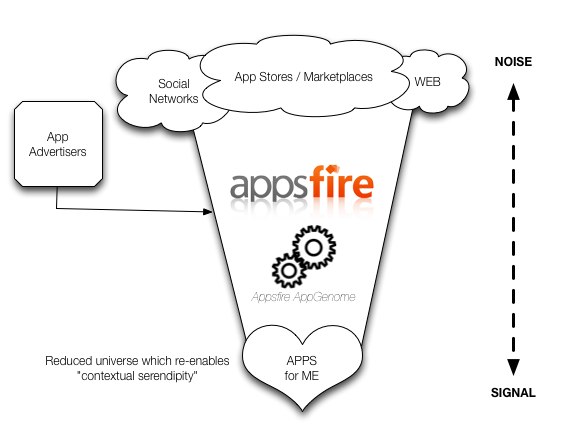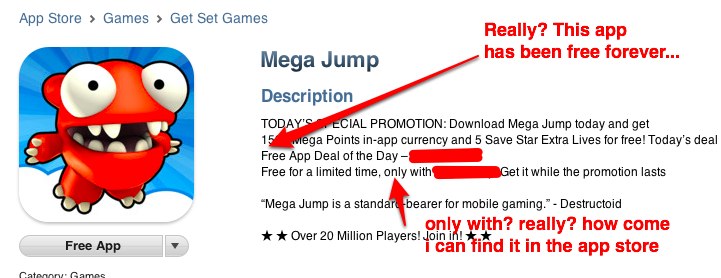The App discovery is a young industry. But also a very messy one with all kinds of weird and shady business practices. Recently a lot was said about the Bot and fake download business. But this is just the tipping point of a bigger set of problems.
We’re not used to write a lot about how we work with our customers [ we just prefer to work], but recently we received a few inquiries from our (potential) customers and naturally we are compared with some other services doing similar things that we do. A lot of confusion is going on.
So we wanted to bring some light on what we do and how we do it.
1. App developers do not pay to get listed in Appsfire recommendation engine
Our mission is to bring the best recommendations to users. We created a variety of discovery mechanisms that are able to surface only the very best apps in a nice interface. Those mechanisms are either based on
a. algorithms (eg: recommendation based on your tastes) and device parameters like your location or device type
b. our users activity - eg your social graph (apps of your friend)
c. the developer’s activity (freshest apps, price drops for promotions,..)
d. Crowdsourced metadata: we crawl the web in real time for top quality signals (twitter post, facebook like, review sites, …) check AppTrends for example
We created an internal score (called AppScore) which indicates whether an app is a quality app or not and allows us for example to detect apps that fraud the rating system or plays the YoYo with their pricing activity to fake promotions etc etc…
What users see is an objective, non paid rendering of Appsfire recommendations, whether in our streams or search results. Users don’t need to care about our sausage recipe. They only care about the taste.
What we care about though, is that they know when a paid promotion takes place [read more below on that]
2. How our paid promotion works for both developers and users
- Once a day (maximum), we highlight an app. Sometimes this promotion is paid by advertisers. How does that work? How do users know about it?
- we are approached every day by many developers. Although we would like to work with all them we are very selective about who we care to highlight
- We match their apps with our internal AppScore. Only great apps pass the filter. Yes, we refuse to work with some potential customers
- If an app is new, we use the app for a few days and inquire about the developer before making a decision
- We use a series of non intrusive ad placements - including push notifications (which is Opt in only) to promote our partners - once a day
- How do users know about it? We mark that the app as promoted, so that the users can make the difference between organic recommendations and advertising
This last point is critical. Many app discovery services, and even some large ad networks do not make the difference between an non paid and a paid recommendation. Between paid promotion and organic recommendation. Some services are only recommending apps based on the fact developers will pay. Except it’s impossible to know about it.
There is nothing wrong with “paid promotion only”- apps [although this is not exactly recommendation] but Users need to be able to know about this. They need to know whether the app they are “recommended” is promoted because they paid (or compensated in some way) or not. User need to be able to make a difference because it can affect their judgement and decision
There is a major difference between the app discovery business and the paid discovery business. The same major difference exist on the Web. On Facebook with Social ads, on Search with AdWords, on Blogs and Sponsored post. Can you imagine a Google or a Facebook not telling that what they show are ads? Would you still trust them?
The industry needs a lot of upgrades on that side. We even know that some App review sites ask to be paid for reviews, but fail to explain that in their site or post. And some app discovery sites are only build on the fact that advertisers pay them to promote them. Can we live with that? Yep.
But this is just wrong. This needs to change.
3. We do not reward or pay users to download apps
Unlike many services, we do not reward or pay users to download apps. Users chose whether they trust our recommendations or not and they will download an app with no incentive. Even if an app is promoted users will make a choice whether it’s worth downloading or not based on what the app is.
We do not force users to download another app, review, rate, or even open the app after they download it to get a reward, which is a fake motivation for downloads. It is only high intent (people come to discover apps) non rewarded and Opti-in downloads
Some people may consider that promoting an app which price is reduced *is* an incentive. This is wrong. There is a big difference between stimulating the interest and reduction the friction to download an app by reducing the price and giving something away that is unrelated to the app (money, points,…) just to obtain a download.
We provide high quality recommendations and that our apps, are good enough to generate downloads. We send millions of people to the App Store or Android Market every month.
4. We do not promote fake deals
One of our most popular apps - App Deals - brings the best selections of apps in promotion every day. There are tones of deals apps in the app store. But there are important differences.
On a daily basis thousands of apps are made free or cheaper by developers. This is a famous marketing trick to get your apps some traction. We help surface that. You Won’t see all of the deals available. Here is what we don’t do. We do not promote fake deals.
- We won’t make you believe that you have to download Appsfire to access a given deal - because this is wrong - although we prefer if you do. If you want to get it directly from the store, go ahead. And if you see an app that claims “you can access this app promotion only through us” this is plain wrong and abusive.
- We will always show you the latest price before the promotion to avoid any confusion.
- We won’t announce or make believe that an app is made FREE, when it always was. A Deal *is* a Deal.
- We won’t promote an app that has been free all the time, then suddenly raised artificially its price say for a day and then became free again just to get spotted by services like us. We filter them. Not all App discovery services do.
- We put away YoYo apps: paid apps that become free suddenly every week in the hope to get the attention of companies like us. For example, this app becomes free nearly every day
- If an app is becoming cheaper too regularly we’ll attribute a low weight and it will probably never show up in our recommendations. Like this app, whose price is changing to cheap nearly every day
- On Android developers can’t just make their paid app become free: it then has to stay free or the app needs to be resubmitted (and loose the review history). So the price shifting activity to free is nearly none existing. This is why we have not replicated App Deals on Android and this is why we’re not trying to create unnecessary confusions for users to believe this is possible [until Google changes something about that]
- We will not take credit for a deal we did not negotiate with a developer or rewrite the app description to make users believe we negotiated that deal or create a confusion by not saying anything about a deal. If we negotiate a deal, users will know if because it will be written in the page description of the App itself and we’ll mention it too in our app.
You think that those are uncommon practices? Well, dig in the App discovery space…you ll be surprised.
The same way we created an AppScore for app quality, we have a DealScore which indicates whether the App is offering a real deal or not.
Most users don’t need to know about this. They need to feel we provide quality recommendations
They need to trust us. Because trust is what this is all about.
So What’s next?
We hope this post will open the eyes of many of our partners or potential partners but will also comfort our users that we’re bringing the best possible recommendations and elements of transparency in our products
In the meantime we hope that:
- App discovery services should be more transparent about what is advertising and what’s not for users and also for their customers.
- Developers should be more demanding about their providers for transparency in advertising
- We wish the same as IAB rules applied to the mobile app discovery space. Maybe someone is listening







